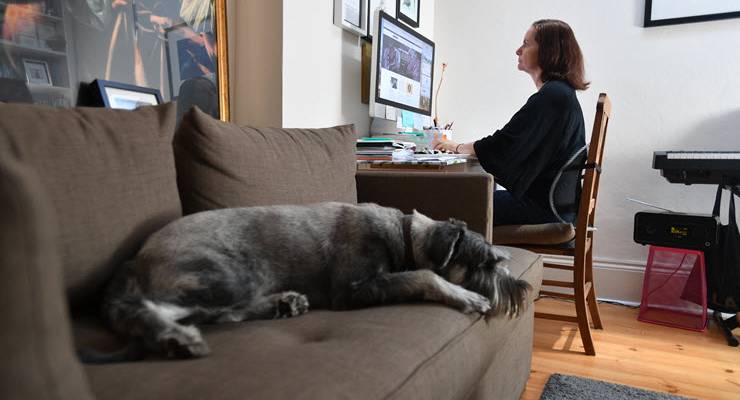
Like many people around the world, Australians are starting to realise that working from home is not exactly what it’s cracked up to be.
But researchers say much of the increase in working from home will likely become permanent, even after the immediate health emergency passes.
Some organisations have acknowledged the toll working from home is taking on its workforce. The Australian National University (ANU) says it will take into account the impact on families and carers, telling staff that if they can work at least 25 hours a week (pro-rata for part-time staff) this will be deemed a full working week for pay purposes.
But others, like Deloitte, have exploited the potential loss of productivity, warning staff to be “as productive as possible” while working from home or risk redundancy.
The Australia Institute’s Centre for Future Work estimates around 30% of all jobs in Australia can be done from home — the equivalent of around 4 million workers — with at least half of those currently doing just that. They believe this number could rise after the crisis, as employers see the cost savings of having staff at home.
“There will be a significant push and interest by businesses to keep people working at home, as employers see the benefit in decreasing the costs of maintaining a formal workplace,” Alison Pennington, a senior economist for the Centre for Future Work said.
“You’ve got all the costs of expensive CBD offices, utilities, printing that they can now shift onto employees. And that’s a serious concern.”
The centre has made the case for these costs to be formally recognised in work-from-home clauses in awards, for example, saying tax offsets are not enough. But questions remain about workplace health and safety laws, and the unfair burdens placed on workers if millions more are expected to work from home.
“What is going on right now is people are working on kitchen benches or their beds. The idea that everyone has the space to have offices in their house is ludicrous.”
Of course not everyone has the privilege of working from home — manufacturing workers, tradies and healthcare workers are still turning up to work. But working from home can accentuate inequalities within the workplace.
Dr Fiona Jenkins, an associate professor of philosophy at the ANU’s Research School of Social Sciences, says working from home can have negative consequences for women, parents and people on low incomes.
“We’re not really thinking hard enough about how these burdens fall differently on different people,” she said.
“We’re talking about working from home as if it’s one single thing. But of course it means massively different things to different people.”
Jenkins said that instead of looking at it through the lens of “flexibility”, workers should acknowledge that their homes have essentially been “requisitioned” by their employers.
“We’ve assumed that the home is a cost-free resource that we can all draw on, but in fact, that load falls on individuals, and it’s important to reflect on how that’s falling differently on different people,” she said.
“It’s great if you’ve got an office, you can close a door. But if you’ve got to work at the dining room table, or you’re homeschooling children, it’s not possible to draw those clear boundaries.”








Crikey is committed to hosting lively discussions. Help us keep the conversation useful, interesting and welcoming. We aim to publish comments quickly in the interest of promoting robust conversation, but we’re a small team and we deploy filters to protect against legal risk. Occasionally your comment may be held up while we review, but we’re working as fast as we can to keep the conversation rolling.
The Crikey comment section is members-only content. Please subscribe to leave a comment.
The Crikey comment section is members-only content. Please login to leave a comment.